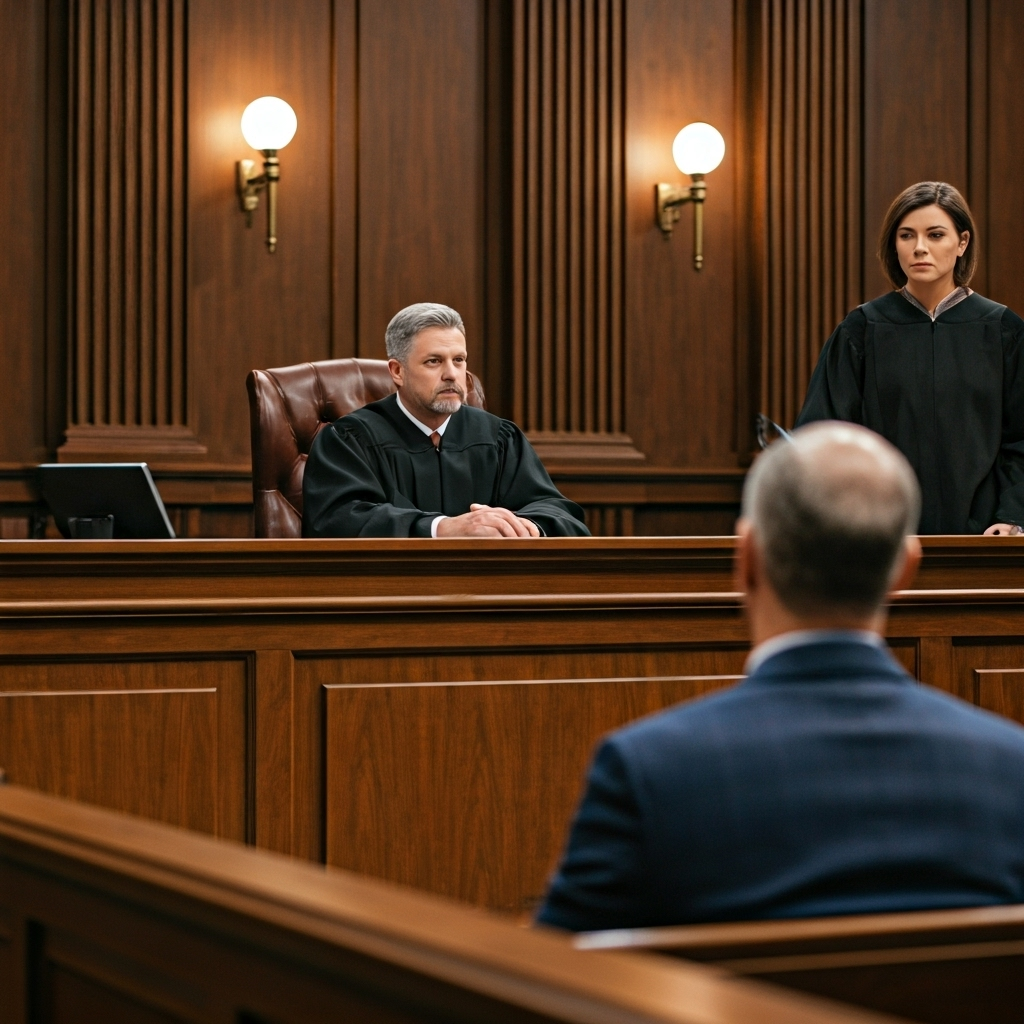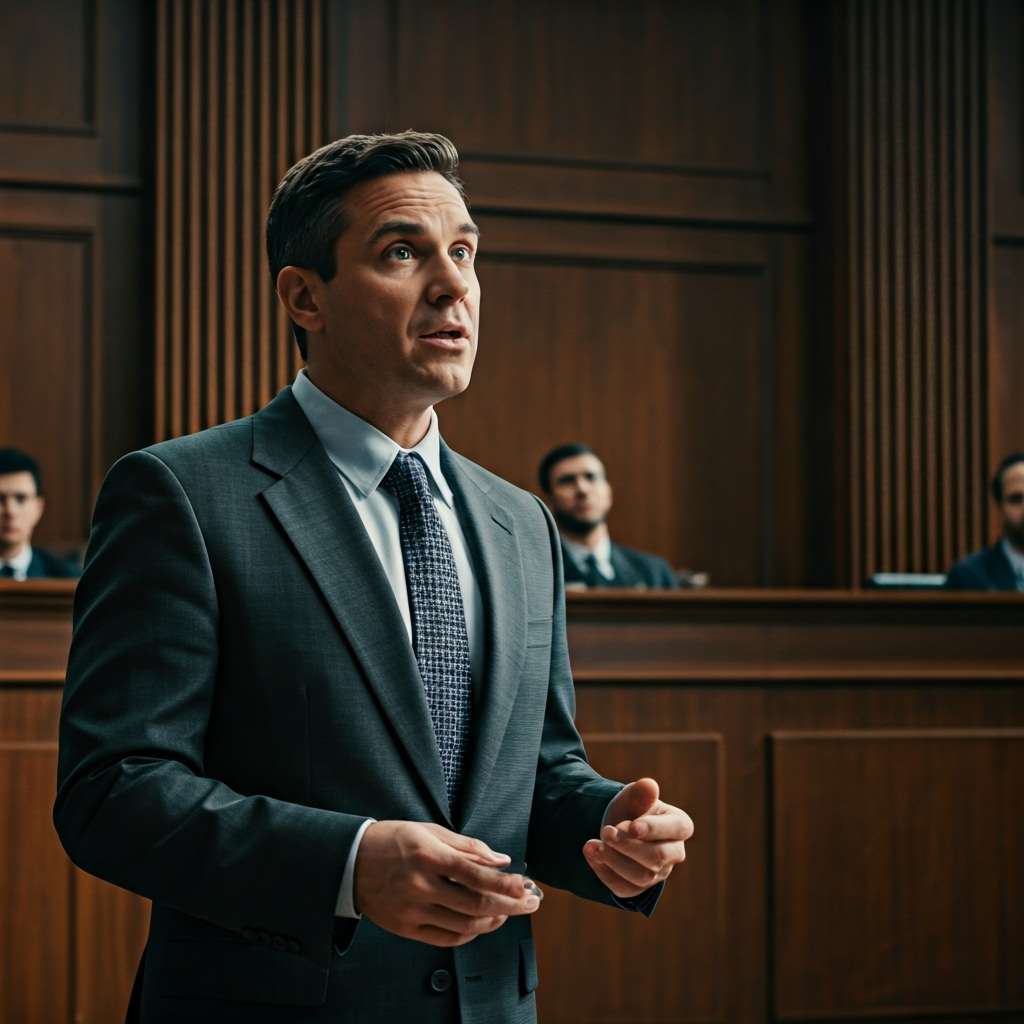What is Negligent Second Degree in WA State? A Complete Guide

Key Highlights
- Negligent second degree in Washington State refers to a civil traffic infraction that involves operating a motor vehicle without exercising ordinary care under similar circumstances.
- Penalties for this infraction can include fines up to $559, potential license suspension, and increased insurance rates.
- Your driving record can be impacted for three years, potentially affecting future job opportunities and financial stability.
- Legal defenses to contest negligent second degree charges include working with an experienced attorney through a contested hearing.
- Differentiating first degree negligent driving from second degree lies in the presence of substance effects and criminal penalties.
Let’s explore the detailed aspects of negligent second degree, beginning with its introduction.
Introduction
Negligent second degree is a term used in Washington State law if you get a traffic ticket infraction. This means a driver did something, or did not do something, that a reasonably careful person would not do in similar circumstances. If you are charged with a negligent second degree traffic ticket infraction, it can do more than just make you pay a fine. It could add points to your driving record and make your insurance rates go up. It is good to understand what negligent second degree is in Washington State. You should also know how having legal representation can help you protect your rights and keep from having problems later on.
Now, let’s talk about what negligent second degree actually means under washington state law.
Understanding Negligent Second Degree in Washington State
 Washington law sorts negligent driving into two main levels: first degree and second degree. Negligent driving 2nd degree, which is listed in RCW 46.61.525, is seen as a traffic infraction, not a criminal charge. Even so, the bad effects of this infraction can still be serious.
Washington law sorts negligent driving into two main levels: first degree and second degree. Negligent driving 2nd degree, which is listed in RCW 46.61.525, is seen as a traffic infraction, not a criminal charge. Even so, the bad effects of this infraction can still be serious.
Negligent driving first degree is different. That charge is usually tied to signs of drug or alcohol use. The second degree, on the other hand, is about not showing enough ordinary care while driving. If you get a citation for negligent driving 2nd degree, you may face fines. Your insurance could also cost more, and there will be a note on your driving record. Let’s take a closer look at what the law says about negligent driving 2nd degree and what it can mean for you.
Definition of Negligent Second Degree
Negligent driving 2nd degree in Washington State is a civil traffic infraction listed under RCW 46.61.525. This means someone operates a car in a careless way, which can involve degrees of negligent driving. This driver does not use ordinary care that others would have in similar circumstances. The driver’s lack of care has to put people or property in danger, or be likely to do so.
The kind of negligence people might show could include things like driving too fast on icy roads, crossing the center line, or not signaling a turn. Sometimes, it happens because someone fails to react to poor road conditions or stays unaware of basic safety steps that most careful drivers would use.
In Washington, what counts as negligence can depend on the situation. Law enforcement officers will look at how you drive. They then decide if it fits the rules in the RCW and if you should get a negligent driving citation. Now, let’s talk about how negligent driving second degree in washington state is different from first degree, and how the two compare in detail.
How Negligent Second Degree Differs from First Degree
Negligent driving first degree is seen as a criminal charge and is a misdemeanor. Negligent driving second degree, on the other hand, is a civil traffic infraction. In both cases, a person does not use ordinary care when they drive. The difference is that first degree involves things like using substances and gets a harsher penalty.
| Aspect | First Degree | Second Degree |
|---|---|---|
| Legal Nature | Criminal Charge (Misdemeanor) | Civil Traffic Infraction |
| Substance Effects | Needed (like alcohol or drugs) | Not Involved |
| Penalties | Jail up to 90 days, $1,000 fine | Fine up to $559 |
| License Impact | Must have Ignition Interlock** | Rare; only in cases with Vulnerable User** |
Negligent driving first degree is when drivers show reckless behavior and look like they are under the influence. Second degree negligent driving is when people act with carelessness, for example, by crossing over a yellow line. Knowing the difference helps people see how serious each charge can be. Next, we will talk about what can cause a person to get a second degree negligent driving charge.
Legal Criteria for Negligent Second Degree Charges
 A charge of negligent second degree comes up when a driver acts in a way that is careless in similar circumstances. Prosecutors look at if the driver did not do what a reasonably careful person would do in that situation.
A charge of negligent second degree comes up when a driver acts in a way that is careless in similar circumstances. Prosecutors look at if the driver did not do what a reasonably careful person would do in that situation.
Some common situations be when a driver shows clear negligence. For example, going over the speed limit in bad weather will be one. When there is a citation for this, it is only a traffic infraction. It is not a criminal offense. Now, let’s look at what things prosecutors need to prove to show someone was negligent in the second degree.
Elements Prosecutors Must Prove
To get a conviction for negligent driving in the second degree, the prosecutor must show four main things:
- Ordinary Care Violation: The driver did not use the ordinary care expected in similar circumstances.
- Endangerment: This careless, or negligent, action put people or property at risk, or could have done so.
- Traffic Infraction Verified: The driver’s action is linked to a known traffic infraction under RCW 46.61.525.
- Officer’s Subjective Assessment: The officer who gave the citation must say why he or she thought the driver should get the ticket.
To prove these key points in court, prosecutors often need people who saw what happened, police reports, or facts about the local environment, like if the road was in bad shape. Now, let’s look at some situations that often lead to someone getting a second degree negligent driving ticket.
Common Examples and Scenarios
Negligent second degree cases often happen because of accidents or when someone makes unsafe choices on the road. Some of the most common examples are:
- Not slowing down when driving in snow or rain, which can make road accidents more likely.
- Going over the yellow line, or not checking blind spots before changing lanes.
- Forgetting to use turn signals, which can put other drivers or people walking at risk.
- Doing a few small things wrong while driving. These can add up and lead to a negligent driving ticket.
There are some times when the police do not see the accident take place. Even in those times, people can still face charges. These situations show why everyone must be careful when driving. Next, we will look at what penalties come with a negligent second degree conviction.
Penalties and Consequences of a Conviction
Negligent driving in the second degree comes with financial and other problems. If you get this traffic infraction, the fine can be as much as $559. But that is not all. The cost can go up because your insurance may get higher after this.
There are more things to worry about too. You can have a mark on your driving record for three years. This can make it hard to get or keep a license, and some driving jobs may not hire you. If you are in a vulnerable user case, the court could even give you a license suspension. Let’s talk more about the fine and how your license can be affected.
Fines, License Impact, and Other Legal Repercussions
Negligent second degree fines start at a $250 base amount, plus court fees, totaling $559. While not as serious as criminal charges, these can still be on your record for three years.
The Department of Licensing classifies negligent driving, or Neg 2, as a moving violation. This can make your insurance rates go up a lot. If you get Neg 2 in a Vulnerable User case, the consequences get worse. You could lose your license for 90 days and the fines could be as high as $10,000.
If you want to fight the charges, you can try mitigation or get legal representation. This might lower the penalties and protect your record. But what does all this mean for your long-term insurance rates and your driving record?
Long-Term Effects on Insurance and Records
Getting a negligent driving charge can make your insurance go up a lot. Insurance companies see second degree negligent driving and other violations as signs that you may be risky on the road. When you get this kind of infraction, your rates can go up by 20 to 25 percent. This means you might pay thousands more over the next three years.
Your driving record will show the negligent violation for some time. This can hurt your chances to get a job if the job needs a clean record. Many times, insurance companies do not see a difference between each type of negligent driving. They may treat a civil infraction like it is a criminal misdemeanor.
Because of the severe and lasting effects, it is a good idea for drivers to think about fighting these citations, especially when facing DUI or second degree negligent driving charges. Next, we will talk about some ways to defend yourself against second degree negligent driving charges.
Defending Against Negligent Second Degree Charges
Facing negligent driving charges does not mean that you have to accept the outcome. Legal representation can be very helpful when you want to defend against these claims. An experienced attorney will know how to question the officer’s judgment during a contested hearing. Your attorney can bring in proof that helps you.
Good legal defenses start with looking at the details of your ticket. You also need to think about what the road was like at that time. It is important to check if you followed RCW rules. Let’s look at some ways you can use defense strategies in a case like this.
Possible Legal Defenses
Defending yourself against a negligent driving citation can be done in different ways:
- Consent on Private Property: You can show that you drove the car on private property, and you had the owner’s permission to be there.
- Weather Conditions: Sometimes, things like snow or ice on the road can make it look like you were driving in a careless way, even if you weren’t. You can use this as part of your defense.
- Insufficient Evidence: You can point out if there is not enough good proof from the officer or anyone else who saw what happened.
- Challenging Subjectivity: You may be able to show that the officer’s view of what was negligent might be influenced by what they think, not the facts.
Using a plan that fits your situation can stop you from having problems with your driving record later on. Getting help from an expert is very important if you get a negligent driving citation. Working with a defense attorney lets you know the best way to defend yourself and explains why legal help is so helpful in these cases.
The Role of a Defense Attorney in Washington
Hiring an experienced attorney helps make sure your case gets the right attention. Defense attorneys will look at officer reports and find any problems in the proof. They will also build arguments based on RCW rules.
They show up at hearings to try and lower your fines. They work to stop charges from raising your insurance rates. Attorneys can also work out other options, like traffic school or a plea to lessen the charge. This helps keep your record clean.
“Experienced attorneys keep your future safe in Seattle,” says Mark C. Blair. He is one of the top traffic lawyers in Washington. Do not wait to get help from a skilled attorney for your case. To end, let’s review what we talked about just now.
Conclusion
To sum up, knowing about negligent second degree in Washington State is very important for anyone dealing with the law there. This guide has given you a look at what it means, what the law says, and what might happen if you get charged. You should know how these charges are not the same as first-degree negligence, learn about the defenses you can use, and understand there are a number of ways to defend against these charges. If you or someone you know has these charges, it is a good idea to talk to a defense lawyer. This can make a difference for your case. Taking action early can help lower the effects on your driving record and your insurance. This makes sure you are ready and have the right information. If you want help that fits your situation, feel free to ask for a free consultation.
Frequently Asked Questions
Is negligent second degree considered a criminal offense in WA?
No, negligent second degree is not seen as a criminal offense in Washington State. Instead, it is seen as a civil traffic infraction and not as a misdemeanor. This is different from negligent first degree. You will not face jail time for second degree, but it can still bring serious penalties. In Washington, an infraction like this can still be a big problem even if it is not counted as a criminal offense.
How long does a negligent second degree conviction stay on my driving record?
A negligent driving 2nd degree citation will stay on your driving record for three years in Washington. The department of licensing says this is their rule. During this time, the citation can affect your insurance rates. It may also make it harder to get some jobs.
Can a negligent second degree charge be reduced or dismissed?
Yes, with the right legal help, a negligent driving charge might be lowered or even dropped. You can contest the ticket by going to a hearing. Having an experienced attorney on your side also gives you a better chance to get a good result. If you or someone you know faces a negligent driving charge, having help will make a big difference.
Will I lose my license if convicted of negligent second degree?
Your license will not be suspended if you get a standard negligent second degree charge. But if you get cited under RCW 46.61.526 for an event with a vulnerable user, there will be a license suspension for 90 days. There are also other penalties you may face.
What should I do after receiving a negligent second degree ticket?
After you get a negligent driving ticket, it is best to talk to an experienced attorney for legal help. You have a few choices. You can fight the ticket at a hearing or look into ways to lower the charge, like mitigation. It is important to act fast. Reach out now for a free consultation about your negligent driving case.
Call Now or USE contact form a for same-day response:









Thanks to their expertise, the fines were successfully dismissed, and I felt fully supported throughout the process. I highly recommend this attorney to anyone looking for reliable, knowledgeable, and truly dedicated legal help.

